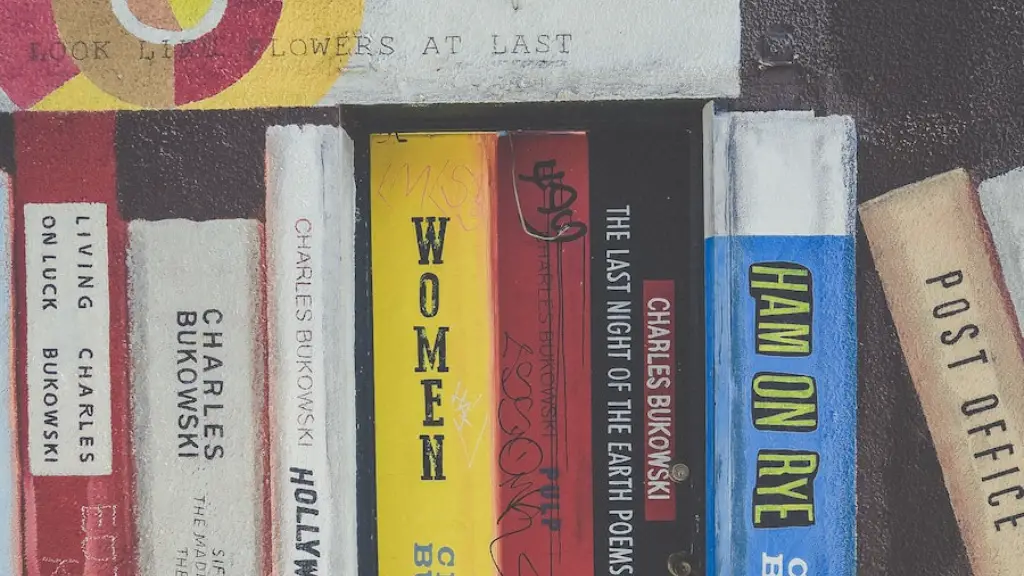Historical Perspective
Poetry is one of the oldest forms of communication known to humankind and dates back to the ancient Sumerians. The Sumerians lived in a large area near the Tigris and Euphrates rivers in what is now Iraq. Around 3000 BC, the Sumerians developed a writing system which enabled them to record their oral traditions, beliefs and experiences. It was at this time that poetry began to emerge. Poetry served many purposes, from expressing emotions to educating people. Some of the oldest surviving written works are poems, such as the Epic of Gilgamesh, which was written in around 1800 BC.
The Ancient Greeks were also well known for their poetic works. Over the centuries, poets used the form to express their views on the world and to provoke thought and debate. The Roman poet Horace summarised this in his ‘ Ars Poetica’: “Art should both delight and instruct”. Poetry was also a powerful tool in political discourse and even warfare. Poets such as Homer used the form to celebrate the victory of their civilisation and emulate the gods. As time went by, poetry evolved, taking on different forms and styles.
Modern Applications
Since the emergence of the printing press, poetry has been used for a variety of purposes. One of the most popular is its use for expressing emotion. Poems are often used to express love, joy, grief, despair and a myriad of other human experiences. Poetry has also become popular for its educational value. Today, many teachers use poetry to teach children about subjects such as language, literature and history.
Poetry is also sometimes used in popular culture. Poems can be set to music, often with great success. Popular poets such as Maya Angelou and T.S. Eliot have had their work turned into popular songs, exposing a whole new generation to poetry. It has also been used to great effect in political discourse. Poets such as Audre Lorde and Langston Hughes have used poetry to promote social change and justice.
Impact on Society
The influence of poetry on society cannot be understated. Poetry has often been compared to ‘mirrors, reflecting the world’ and providing a commentary on current events or social issues. Poetry is, in many ways, a reflection of who we are and what we value. It can also help us to express ourselves and make sense of our experiences. As such, poetry has become an essential part of our culture and serves a variety of purposes.
For many people, poetry is a form of escapism. It can be used to help usescape from our troubles and explore uncharted realms of the imagination. This can be especially beneficial for those who feel isolated or marginalised in society. In this way, poetry can be a source of support and solace for those who are struggling and it can bridge the divide between people of different cultures, backgrounds or ages.
Reference in Contemporary Literature and Film
The influence of poetry can also be seen in contemporary literature and film. Poetry often acts as a symbol or reference in these works and can add immense depth and meaning to them. For example, Shakespeare’s play Romeo and Juliet is perhaps the most famous example of the use of poetry in literature. Throughout the play, Romeo and Juliet use poetry to express their love for one another. The medium plays a crucial role in the play and provides the audience with an insight into the characters’ emotions and relationships.
Film and television are also replete with references to poetry. From American Beauty to The Matrix, poetry has been used to enhance the story and provide an additional layer of meaning. Many of these works, while enjoyable to watch in their own right, become more engaging when one realises the influence of poetry within them. In this manner, poetry has helped to enrich modern literature and cinema and become an integral part of both.
Potential of Poetry
The potential of poetry is perhaps its greatest strength. Poetry can be used to express all manner of emotions, ideas and experiences. It can also be used as a powerful tool for social change, as well as for entertainment. This versatility ensures that poetry retains a vital role in our cultural landscape and provides us with a way to explore our collective identity.
What makes poetry even more impressive is its ability to transcend language and culture. Poetry has the power to communicate beyond the boundaries of language and culture and create a connection between people. This has empowered poets throughout the centuries, giving them the ability to reach ever greater audiences and spread their message to a wider world.
Why Poetry Matters
The importance of poetry cannot be overstated. Poetry has served many purposes throughout the centuries, from providing comfort and entertainment to offering insight into our experiences and feelings. Although it can be difficult to understand or interpret at times, poetry has the power to engage and inspire us. It also holds the potential to bridge cultural and language barriers and bring us closer together.
Poetry is also increasingly being recognised as an important part of education. Poetry provides us with an insight into our language and culture, while offering rich opportunities for learning. By teaching children the basics of poetic language and form, teachers can help them to cultivate a better understanding of the world and become more engaged with it.
Poetry as Communication Tool
In recent years, poetry has also been used to great effect as a communication tool. It has been used to draw attention to important issues, such as climate change, poverty and inequality. By using imagery, metaphor and the power of words, poets can capture the essence of an issue and communicate it in a more emotive and meaningful way. They can also challenge people’s views and encourage them to think about issues in a different way.
There is also much evidence to suggest that poetry can be an effective way of expressing difficult topics, such as mental health. Through poetry, people can explore their feelings, air their worries and share their stories with others. This can be a powerful and cathartic experience, and can help to create a sense of community, understanding and healing.
Importance of Archiving Poetry
Another important benefit of poetry is the need to archive it in order to preserve it for future generations. By recording and sharing the works of our most talented and influential poets, we are able to ensure that their words and ideas will live on long after they are gone. This helps us to connect with our past, build a bridge between generations and learn from the wisdom and insight of our predecessors.
In conclusion, poetry has played an essential role in our cultural landscape for millennia and continues to do so today. It is a powerful tool for communication, self-expression, education and change. Its potential is virtually limitless and it is for these reasons that it is so important to preserve and share the works of our greatest poets.


